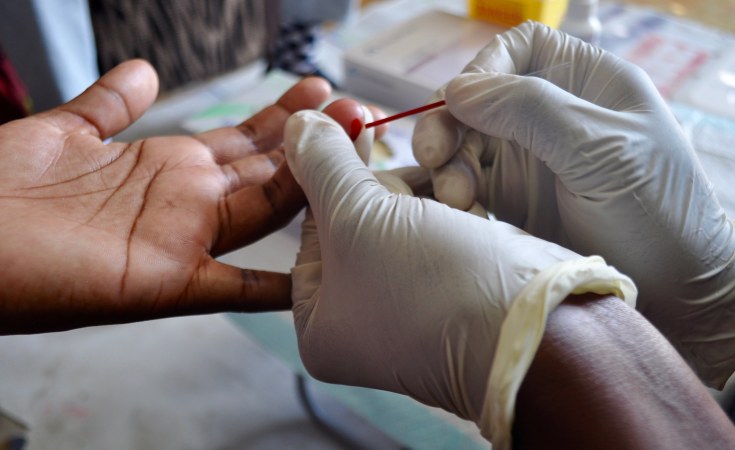Cape Town — Visiting people in their homes to offer them HIV tests, and referring those who test positive to local clinics, can significantly reduce new infections in a community, according to the world's biggest study on how to cut HIV infection rates.
The results of the study, carried out in 21 communities in urban and peri-urban areas of Zambia and South Africa over a period of about four years, were announced at a conference in Seattle on Tuesday (African time zones).
The research was undertaken as part of efforts to bring down the stubbornly high infection rates in many parts of Southern Africa. The experts who identified more effective HIV prevention strategies as an urgent need say that HIV incidence remains at "very high levels" – when the study was launched, five people were becoming infected for every two entering treatment.
In the course of the research, community HIV-care providers visited hundreds of thousands of people in their homes, offering them a package of HIV prevention services including voluntary counselling and testing for HIV in their homes.
In the research arm of the study, a sample of about 2,300 people aged between 18 and 44 years was recruited from each of the 21 study communities - a total of about 48,000 people - and split into three groups for comparative purposes.
Participants in one group were placed on anti-retroviral therapy (ART) when their conditions deteriorated enough for them to qualify for treatment under national health guidelines in their country at the time – that is, when the number of white blood cells which fight infection dropped to a certain level.
In its headline finding, the study said the number of new HIV infections in this group declined by 30 percent compared to a group which was not part of the home-counselling and testing intervention.
This decrease was "highly significant", according to Dr. Richard Hayes, a leader of the research and professor of epidemiology and international health at the London School of Hygiene and Tropical Medicine.
Beatrice Morobe, a member of a group which liaised with researchers, clinics and the communities taking part, said that encouraging participants to get tested and helping them access ARVs helped to break down the stigma surrounding HIV infection.
Dr. Peter Bock, one of those who conducted the research in South Africa, said the results "strongly support the ongoing expansion of... community-based platforms for health service delivery." There were "extensive opportunities for improved delivery of community-based health care services and more effective partnerships with communities," he added.
In another finding – which surprised the researchers – the decrease in infections was not replicated for a third group of participants, one which was offered anti-retrovirals immediately upon diagnosis instead of having to wait.
However, Dr Bock said it is too early to conclude that this means immediate ARV intervention does not reduce infections. The difference may have been the result of factors not examined in the initial analysis of the data, he said, and further analysis is being done.
Dr. Sarah Fidler, who co-led the study and is professor of medicine at Imperial College, London, said that although the overall findings of the study were encouraging, there are "important gaps".
"Testing and treatment coverage fall short among young people and men," she said, and this points to a need for further research.
The research was carried out under the auspices of the HIV Prevention Trials Network, a worldwide collaborative clinical trials network which develops and tests interventions designed to prevent HIV infection. Research in Zambia was led by Dr. Helen Ayles of the Zambart research group based at the University of Zambia's School of Medicine, and that in South Africa by Dr. Bock and Dr. Nulda Beyers, both of the Desmond Tutu TB Centre at Stellenbosch University.
This report was amended after publication to include Dr. Bock's remarks and to make clear that the nearly 50,000 people who were part of detailed research were selected from a far higher number of people visited in their homes.


